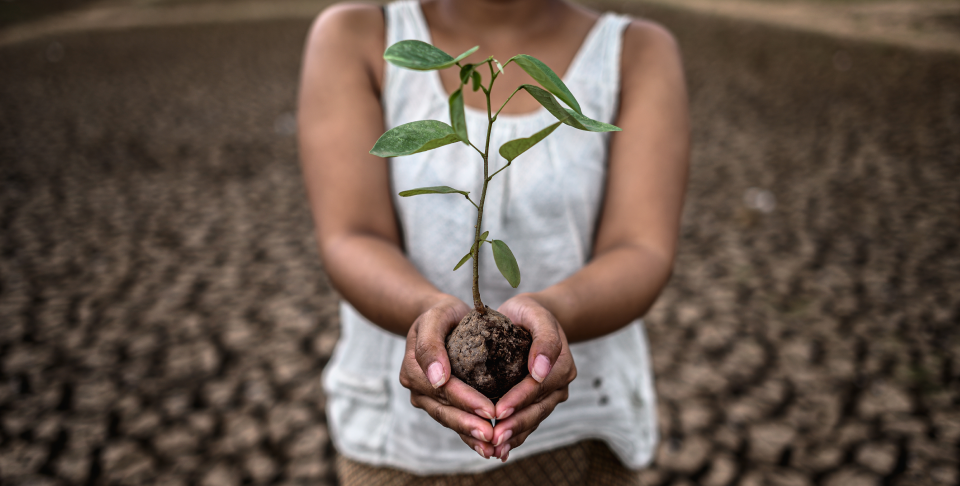Fernanda Lopes
Diretora de Programa do Fundo Baobá
É notório que a crise climática representa riscos substanciais para a saúde, produção de alimentos, abastecimento de água, ecossistemas, energia, segurança e infraestrutura. Embora as mudanças climáticas afetem todo o planeta, uma parte da sociedade é desproporcionalmente afetada por questões sociais, econômicas, políticas, ambientais e socioculturais. Tanto a crise quanto as mudanças exacerbam as desigualdades existentes e as exclusões resultantes de histórias cruzadas de colonialismo, racismo, opressão e discriminação.
No Brasil, 82,5% da população, estimada em 212,7 milhões de pessoas pelo IBGE em 2021, reside em áreas urbanas. O espaço urbano é segregado, e nas zonas caracterizadas por moradias em condições inadequadas para habitação e escassez de serviços fundamentais de infraestrutura, a maioria da população residente é negra. Além disso, nas zonas de maior degradação ambiental, de despejo de lixo tóxico, onde estão localizadas indústrias poluidoras, a maior parte da população também é negra.
O relatório de um estudo do Instituto Pólis comprova em dados como o racismo ambiental acontece. O estudo “Injustiça socioambiental e racismo ambiental” observou três capitais brasileiras — Belém, Recife e São Paulo — e encontrou padrões que se repetem no resto do país. Em Belém, 75% das pessoas que vivem em áreas de risco são negras, representando 64% da população total da cidade. Em Recife, o percentual de negros é de 55%, mas esse número sobe para 59% nas regiões sujeitas a inundação e chega a 68% nos locais com risco de deslizamento e eventos climáticos. Em São Paulo, onde 37% da população é negra, 55% das pessoas que residem em áreas de risco são negras. O racismo ambiental fica evidente quando as consequências das degradações ambientais se concentram em bairros e territórios periféricos, onde vivem famílias mais pobres e onde há maior concentração de pessoas negras, indígenas e quilombolas.
O racismo ambiental apresenta-se como uma ameaça séria e desigual ao gozo de múltiplos direitos humanos, incluindo o direito à vida, à saúde, a um padrão de vida adequado, às gerações futuras, ao território ancestral e ao patrimônio material e imaterial.
Os efeitos das mudanças climáticas são desproporcionais e afetam sobretudo as vítimas do racismo ambiental, algo que é pouco debatido. Até pouco tempo atrás, a discussão estava focada em ativos físicos que eram os recursos naturais, depois a vida animal. As pessoas e as comunidades não estavam no centro das discussões. Hoje em dia é nítido o fato de a crise gerar migrações forçadas, pobreza absoluta e relativa, ampliação da insegurança alimentar e da fome. A mudança climática ultrapassa os limites de uma crise ambiental, gerando também crises sociais, econômicas, culturais e políticas cujos impactos não são sentidos de maneira uniforme.
Em diferentes países do mundo, estudos e dados oficiais indicam que a população negra está entre os grupos mais vulneráveis aos impactos das mudanças climáticas, juntamente com mulheres, crianças, idosos e pessoas pobres em geral. De acordo com um relatório recente da Agência Norte Americana de Proteção Ambiental, afro-americanos e pessoas de ascendência africana têm 40% mais chances de viverem em áreas afetadas por temperaturas extremas e com as maiores taxas de morbimortalidade, conceito da medicina que se refere ao índice de pessoas que adoecem ou morrem em decorrência de uma doença específica dentro de determinado grupo populacional.
O Fundo Baobá é comprometido com a filantropia pelo clima. A convite do GIFE (Grupo de Institutos, Fundações e Empresas), esteve presente na COP 27 e se comprometeu com o enfrentamento da crise climática, reconhecendo o papel das mulheres, das comunidades rurais quilombolas e outras comunidades tradicionais estarem à frente dessas ações. O Baobá também aderiu ao movimento global sobre filantropia para mudança climática, reiterando que, no Brasil, a população negra e outros grupos racializados são os que mais perdem com as injustiças sociais e climáticas.
E aposta em fomentar ações que possam ampliar a voz, o poder, construir autonomia e contribuir com estratégias de mitigação dos efeitos adversos entre grupos mais vulneráveis. O grantmaking caracterizado por pequenos aportes financeiros amplia a capacidade desses grupos para enfrentar, lidar e se recuperar de eventos climáticos pontuais ou extremos, implementando soluções que podem ser adaptadas e replicadas.
Nos contextos rurais, além de contribuir com o reconhecimento das práticas tradicionais, fundamentais para a promoção de um desenvolvimento sustentável e justo, a filantropia pelo clima e para justiça social promovida pelo Fundo Baobá reitera os conhecimentos e práticas tradicionais de gestão dos recursos naturais que preservam e possibilitam sua regeneração e contribuem para a manutenção da biodiversidade implementadas por quilombolas, ribeirinhos, marisqueiras e pescadores. Essas práticas, além de gerar renda, são caminhos para a transição justa, para uma economia mais verde e inclusiva. Vale ressaltar que são soluções testadas e replicáveis, que podem ser adaptadas em diferentes contextos e serem escalonadas por meio de políticas públicas.
Por isso, é tão importante que o ecossistema de filantropia, os setores público e privado e o terceiro setor possam reconhecer a responsabilidade da humanidade pelos impactos do efeito estufa e das emissões de gases nas pessoas negras, mulheres, nos mais pobres e em grupos vulneráveis, abordando de forma crítica as desigualdades, promovendo abordagens transformadoras e soluções regenerativas baseadas nos princípios e diretrizes dos direitos humanos.

